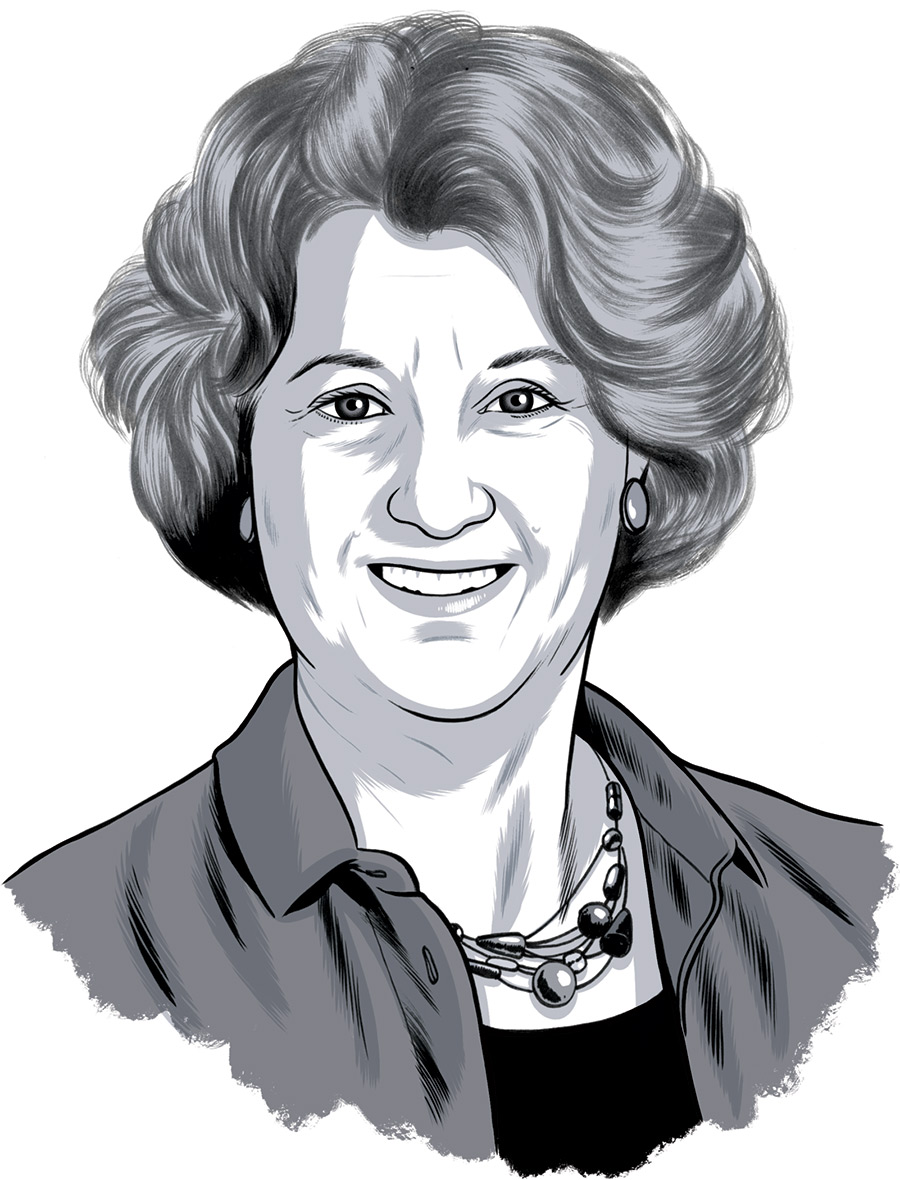

Illustration: Joel Kimmel
Elaine Silver ’74
Guiding Clients to Peaceful Divorce
by Lori Ferguson
“Holistic” collaborative divorce attorney Elaine Silver ’74 knows her goal of attaining peaceful divorces for clients may seem a bit far-fetched. But Silver has successfully facilitated many divorces over her four decades in practice. She represented businessman Carl Icahn’s first wife in her divorce and also won for another client the highest litigated alimony and support award to that date. The president of the Florida Academy of Collaborative Professionals spends her days seeking peace between parties.
Q: You majored in political science at Bucknell. What lessons did you carry into your work as an attorney?
I firmly believe that how you start a process is how you finish. Process fuels results, and I’ve always been interested in resolving, not litigating. Political science is all about process as well. So much of what you study in political science is really about the decision-making process, and a divorce is basically a very serious decision on a personal scale rather than a worldwide scale.
Q: Litigated divorces typically exact a huge toll, even, as you have noted, when your client “wins.” What’s the most important contributor to a “good divorce?”
At the risk of repeating myself, it’s the process you choose to use. In collaborative divorces, we assemble a professional team to help clients through the experience. Team members model respect for one another and help clients find interest-based win-win solutions rather than fuel attacks that result in economic and emotional wounds that scar families for generations.
Q: Collaborative divorce was introduced 30 years ago, yet it remains a relative unknown. Why hasn’t it caught on?
Lawyers tend to be a conservative bunch, and if you’ve always done things one way, it’s not easy to shift gears. There’s an ingrained public perception of how people get divorced — think Kramer vs. Kramer — and people are still discovering that the experience can be private and respectful, not adversarial.
Q: What’s the most amazing outcome you’ve seen from a collaborative divorce?
In several instances we’ve handled cases involving domestic violence or addiction where the parent/child relationship might have been severed and instead we crafted very careful reconciliation plans that enabled both parents to sustain meaningful parent/child relationships. Collaborative processes help us build healthy families postdivorce.
Q: What’s the thing that people most commonly get hung up on?
While there’s no one thing, emotional issues are typically the toughest to navigate — and fights over children or pets or stuff are typically markers for the unresolved emotional issues. I recently facilitated a collaborative divorce for a sophisticated couple who had been separated for three years. They were living entirely separate lives, but they kept dancing around divorce. When the team’s mental health professional got them in the room together and they talked through some issues, they were able to muster a bit more empathy for each other and complete the process in a way that benefited both of them as well as their children.
Q: You’ve represented some famous — and very wealthy — clients. Are their divorces different?
No, but I will say that the richer and more famous they are, the more the collaborative process serves them — it’s private, efficient and the spouses retain control. Admittedly, with wealthy clients, the markers for what it’s really all about may be bigger, but as with any couple, they may still tussle over the silver candlesticks.